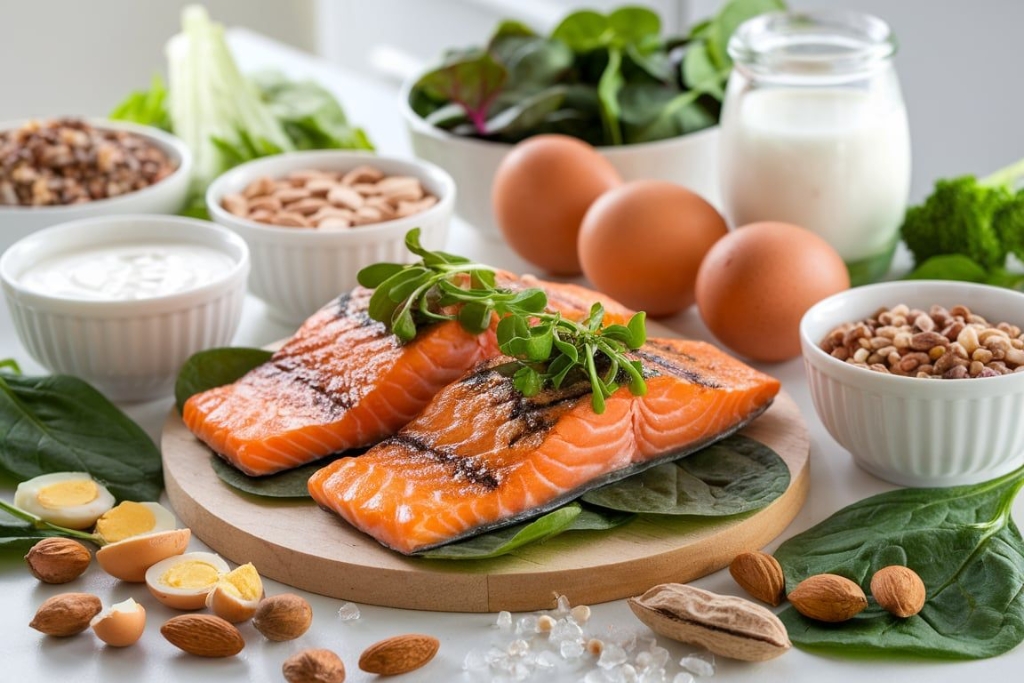
Following Balanced Diet
Magnesium isn’t flashy. It doesn’t get the same buzz as protein or vitamin C. But make no mistake—this mineral quietly powers over 300 enzyme systems in your body, helping regulate muscle function, nerve activity, blood sugar, and even how your heart beats. And yet, most people don’t get enough of it.
You probably wouldn’t notice a magnesium shortfall right away. That’s part of the problem. Low energy? Cravings? Muscle cramps? Trouble sleeping? All of those could be signs your body is running low on this essential mineral. While a true magnesium deficiency is rare for those who eat a varied diet, research shows many of us fall short of the daily recommended amount.
Let’s get into where magnesium hides in your kitchen—and why you should make a little more room on your plate for these often overlooked sources.
Sneaky Signs You Might Be Low on Magnesium
Magnesium does a lot behind the scenes, so when your levels dip, the signs can be subtle. Some of the more common clues include:
- Muscle twitches, cramps, or spasms
- Fatigue or weakness
- Irregular heartbeat
- Numbness or tingling
- Mood changes or increased anxiety
- Sleep disturbances
If these sound familiar, it doesn’t necessarily mean you’re magnesium deficient, but it might be a nudge to check your intake.
Top Food Sources of Magnesium You Might Be Skipping
You don’t need fancy supplements to up your magnesium intake. Your grocery list just needs a little fine-tuning. These foods are naturally high in magnesium but often get passed over:
- Pumpkin seeds: A small handful can give you nearly half your daily needs.
- Almonds: Not just a healthy snack—they’re rich in magnesium and great for energy.
- Spinach: One cup of cooked spinach packs a punch.
- Black beans: Affordable, filling, and full of fiber and magnesium.
- Dark chocolate: Yes, your favorite treat is on the list—just go for 70% cacao or higher.
- Avocados: Rich in healthy fats and magnesium, making them a double win.
- Tofu: Great for plant-based eaters and a surprising source of magnesium.
- Whole grains: Brown rice, oats, and whole wheat bread all count.
These foods also bring bonus nutrients, like fiber, protein, and healthy fats, making them smart additions to any meal.

Magnesium Rich Foods
What Makes You Lose Magnesium Faster?
Even if you’re eating well, you might still be on the magnesium-deficient side if you fall into any of these categories:
- You drink a lot of alcohol
- You have gastrointestinal issues like Crohn’s or celiac
- You take certain medications (like diuretics or proton pump inhibitors)
- You’re under a lot of chronic stress
- You sweat heavily from intense workouts
In these situations, your body might be burning through magnesium or absorbing less of it, which means you need to be even more mindful about getting enough through food.
How Much Magnesium Do You Actually Need?
The recommended dietary allowance (RDA) for magnesium depends on your age and sex. In general, adult women need about 310–320 mg per day, and men need 400–420 mg. Pregnancy, breastfeeding, or high-stress lifestyles might bump those needs up a bit.
And while it can be tempting to pop a supplement, food sources are usually the safer route. Your body tends to absorb magnesium from food more efficiently, and you’re less likely to overdo it that way.
A Small Shift Can Make a Big Difference
Magnesium may not be the most fashionable vitamin on the market presently, but it is an essential component in determining how you feel on a daily basis. What is the good news? Incorporating extra foods that are high in magnesium into your routine does not necessitate a significant change in your diet. With only a dash of seeds here and a helping of greens there, you will be well on your way to achieving your goals.
It is possible that this is the missing link if your body has been providing you subtle indications that something is wrong, such as weariness, tension, or stiffness in particular muscles. If you pay attention to those indications and make a few changes to the foods you eat, you may significantly improve your balance, increase your energy levels, and become healthier and more robust.








